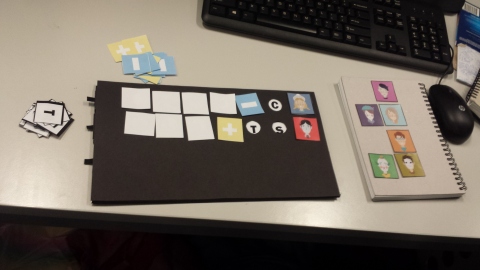I watched a talk about creativity by John Cleese. It was probably one of the most fascinating and helpful things I have ever seen. Creativity is essentially what makes me who I am, I wouldn’t recognize myself if creativity wasn’t in everything I do. So when he described creativity and the creative process it felt as if he was describing myself, to me. It helped me understand why I do what I do, and how I can improve my own way of thinking and creative process.
What I’ve learned from John Clesse
Creativity isn’t a talent or an ability that you do or don’t have. Its like a mode of thinking. John describes this as ‘Play.’ If you are not in play mode you are in closed mode, and you are always in one or the other. Closed mode is something you are in from day to day, where your mind is usually busy and/or anxious and completing tasks that are the most urgent and important. Play mode is relaxed and contemplative, a place where you go to ponder.
There are ways to create a creative atmosphere where your mind can settle into ‘Play Mode.’ There are just four things you need to create for yourself:
- Space. You need to create a space away from everyday life demands. Seal yourself off and make a quiet space for yourself where you will be undisturbed.
- Time. You need to create a certain time frame in which you will allow yourself to be undisturbed until a certain point where your normal day to day life can resume.
- Confidence. The fear of failure will always stop your creative process. To play is to experiment; the essence of play is to do whatever. So you can’t play, and be afraid that something you do might be wrong at the same time.
- Humor. Laughter brings relaxation and humor makes us playful. Just because something is serious, this doesn’t mean it cannot include humor. Humor is an essential part of spontaneity and playfulness. An essential part to the creativity we need to solve problems no matter how serious they are.
“You can’t be spontaneous within reason” -Allan Watts
While you are in you’re creative atmosphere, keep your mind gently focused on the subject at hand. If you keep your mind resting on the subject your mind will keep it in its subconscious and you will benefit from it later.
Working with other people can enhance your creative thought process, although if somebody there affects your confidence, it will have a negative effect rather than positive. Always make sure that the people that you share ideas with are the people that you like and trust, and never say anything to ruin their confidence either. Be positive, and build on what’s being said.
If you don’t know how to start or get stuck on an idea or problem, start generating random ideas and allow your intuition to let you know if something will lead you somewhere interesting.
In summary, he helped me understand that creativity isn’t a talent, but something entirely different that can’t be well described in simple words. Its something that requires concentration and open-mindedness. To be good at it, you must try hard to push your mind to limits you never thought possible, and all the places in-between.
“It’s easier to do trivial things that are urgent, than it is to do important things that are not urgent, like thinking, and it’s easier to do little things we know we can do than to start on big things that we’re not so sure about.”


